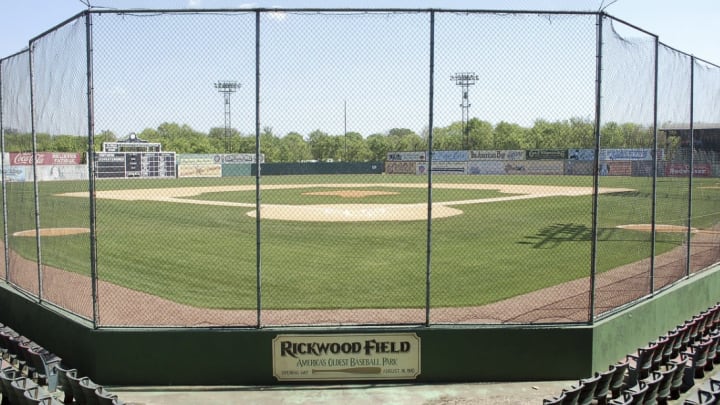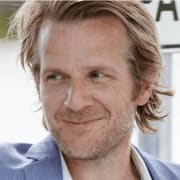Dontrelle Willis on Working Tribute Game at Rickwood Field: 'It's a Cathedral'

On Thursday, FOX Sports and Major League Baseball head to Rickwood Field – the oldest professional ballpark in the United States – as the collective eyes of the baseball world pay tribute to the iconic legacy of the Negro Leagues and its revered players. The event will now take place two days after the passing of Willie Mays, who began his professional career at the stadium with the Birmingham Barons.
Dontrelle Willis, who will contribute to the on-site pregame show, and for whom the opportunity has special meaning, spoke to Sports Illustrated about the one-of-a-kind assignment.
SI: What are you most excited about?
DW: Really just taking in the legacy of the ballpark. To take in all the stories and gain knowledge on who played there, when did they play there, seeing all the memorabilia, seeing the field surface as well. Just to be a patron and enjoy the vibe of the city and the ballpark and what it means.
SI: It also feels like this is a tremendous opportunity for a history lesson for fans. How are you approaching that?
DW: It's one of those things where it's like there's no Dontrelle Willis without the men and women who sacrificed at this ballpark. It's a cathedral of African American baseball. And it's not just baseball history, it's really United States history. Having the ballpark be a historical landmark, you know, it's truly remarkable. Even as an African American I didn't know much about the ballpark until recently. It's just cool to go out there and hear about Willie Mays being there as a teenager. It's unreal stories and unreal ballplayers. From Buck O'Neil to Satchel Paige — these are people who are legacy in this sport. Between the Negro Leagues and this event right now it's really about time that these men and women got their flowers.
SI: When you get to the Major Leagues and you've been there for a few years there has to be a point where everything begins to feel routine. How would you be approaching this experience if you were still playing? Are things like this a chance to recalibrate and reconsider what the game means to you?
DW: You have no choice but to do that because it's not just about you and your routine. These events, like the Field of Dreams game that Fox did a wonderful job with, the World Series, when you're in them you feel so small because you realize it's bigger than you. And that's the cool thing about it. That's what brings the excitement, you know? There's a lot of people in this world that don't even get a chance to learn history let alone be a part of it in an event like this so it's going to be exciting no matter what your background is.
SI: I'm thinking about how the Negro Leagues were contextualized in the overall baseball picture even back when you were playing compared to now and wondering if there's any part of you that's surprised Major League Baseball is doing this game?
DW: I think that they realized it was about time to tell that story. You can't tell the story of baseball in its entirety if you hold out the Negro Leagues. You really have to look yourself in the mirror. You can't tell the whole legacy of the game. All the players we know and love today, they don't get a chance if the Negro Leagues weren't around. Look at all the stars in our league now. The game is alive and well because it's welcome to all.
SI: And this is coming on the heels of Negro League statistics being added to MLB's official record books.
DW: It's always been these wonderful stories like Satchel Paige throwing a doubleheader by himself of Josh Gibson being the true home run king. When you have historical facts, and the Negro Leagues and Bob Kendrick whose done a wonderful job over there continuing to grow, you really have to address it head-on. This is a beautiful byproduct of that. So absolutely, man. It's about damn time. Super excited to be at the field. As a Black Ace, it's a lot to take in because it's like if these people hadn't done this I don't know where my life would be. I'm incredibly indebted, I can't pay them back. How I pay them back is just by listening and enjoying.
SI: Are you anticipating being emotional when you're there?
DW: Absolutely. Because of what I just said. I know my family, growing up in Oakland, my grandfather was my hero because all he talked about was baseball. All he talked about was loving the game. We lived a couple of exits away from the A's stadium so I was one of the few children blessed to be able to just walk down the street to the ballgame. The Negro Leagues back in the day really instilled that love in my grandfather that moved through the rest of my family. My mom played softball, my grandma loved the game. If I don't have that seed planted in me, I don't know where I would be and I don't know where my family would be. My grandfather's not here anymore but I know he's smiling down on me once I'm able to get back to Birmingham.
SI: You talked about listening and enjoying but I would also say that something you seem mindful of is the idea of paying it forward. How does that thought land on you?
DW: There's a responsibility. Guys like Dave Stewart planted that seed and understood the responsibility to pay it forward. It transcends monetary value. You want the world to be a better place and this is how you teach it, by understanding the historical factors and the importance of telling the story the right way. There's a lot of guys in the big leagues now who say that I'm their favorite player. If you're an African American player, and being a Black Ace, yeah I feel a responsibility so when I talk to the Triston McKenzies of the world or Marcus Stroman, the first thing out of their mouth is they want to be a Black Ace. That's the coolest thing in the world. For me to be in the same group as CC Sabathia and Bob Gibson and guys like that, it's like are you kidding me? At the same time, it's wonderful. So that's how you pay it forward because you never want to be the last one. You're seeing the uptick now of African Americans really getting intrigued by the game so I think this is definitely going to push it forward.
SI: Finally, what are you anticipating the crowd and atmosphere to be like?
DW: I think the vibe is going to be fun. I think it's going to have a lot of positivity around it. It's going to be very intimate because the grounds are very intimate so I think that's going to be fun. I think there's going to be a lot of energy outside the stadium where people are selling things, you know? It's just going to be fun. It's going to remind us of and give a type of Negro League feel. It's going to be exciting and it's going to bring the best out of players. They love the uniforms, they're learning the history and they're learning the importance of going out there and putting on the best show. Like they were doing it in the Negro Leagues — they were showmen. They came to provide joy for a couple of hours.
Coverage begins at 5:30 p.m. live from Birmingham as the San Francisco Giants get ready to face the St. Louis Cardinals.
